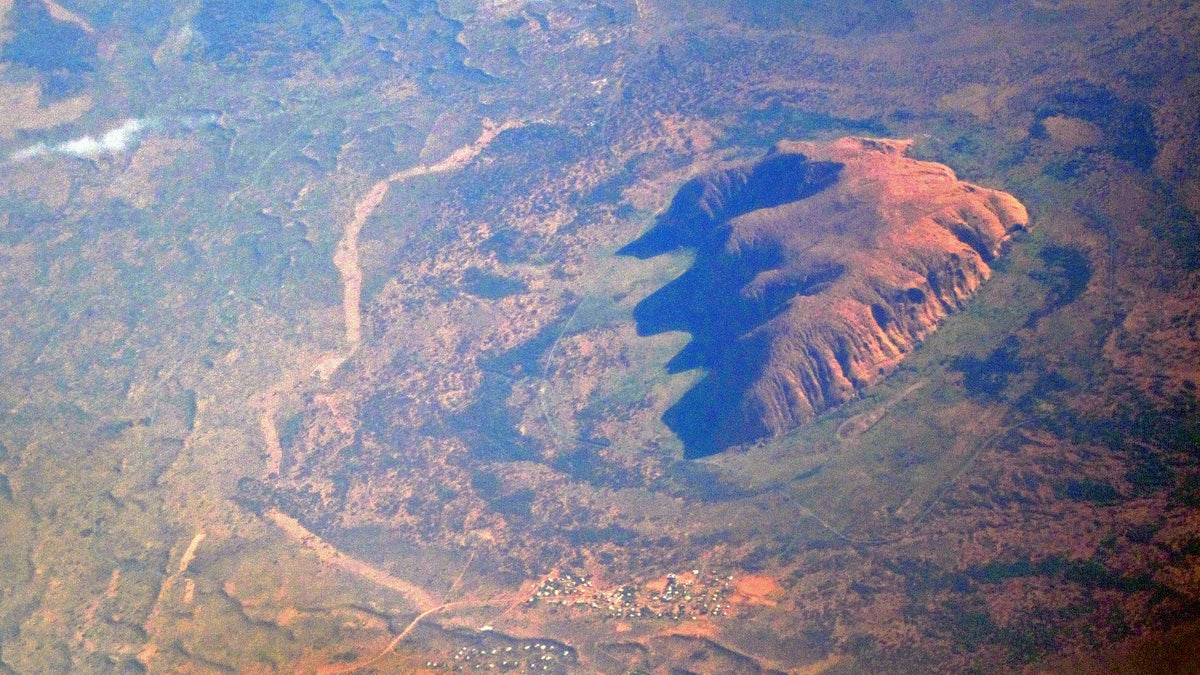
File photo: The Indigenous Australian community of Mutitjulu can be seen on the eastern side of Uluru, also known as Ayers Rock, in this aerial photo taken in the Northern Territory, Australia, June 14, 2016. (REUTERS/David Gray)
New research from Australia has pushed back the date of human settlement in the arid part of the continent to 49,000 years ago— and not only that, the archaeological site in question was reportedly discovered because of a bathroom break.
A study in the journal Nature reports that the findings come from a site called the Warratyi rock shelter, and the evidence experts have found there suggests humans managed to live in the area 10,000 years earlier than originally thought.
“The very fact that [the material] dates back to 49 [thousand years ago] was just [an] incredible shock,” the study’s lead author, Giles Hamm, told the ABC.
The study reports a wealth of discoveries, such as artifacts that are over 46,000 years old and even bone from an extinct animal, a giant marsupial called Diprotodon optatum. They also found ancient bone tools (including one probably used for sewing made from the bone of a yellow-footed rock wallaby) and evidence of the earliest use of ochre in the region, dating to a period at least as old as 46,000 to 49,000 years ago.
CHRIST'S TOMB UNCOVERED: THIS IS WHAT EXPERTS DISCOVERED
“...[O]ur evidence shows that people not only settled in the arid interior within a few millennia of entering the continent,” the researchers report in the study, “but also developed key technologies much earlier than previously recorded for Australia and Southeast Asia.”
Hamm told the ABC that one of the study’s coathors, Clifford Coulthard, originally found the site because he was looking for a place to relieve himself.
"Nature called and Cliff walked up this creek bed into this gorge and found this amazing spring surrounded by rock art," Hamm said, according to the ABC. "A man getting out of the car to go to the toilet led to the discovery of one of the most important sites in Australian pre-history."








































